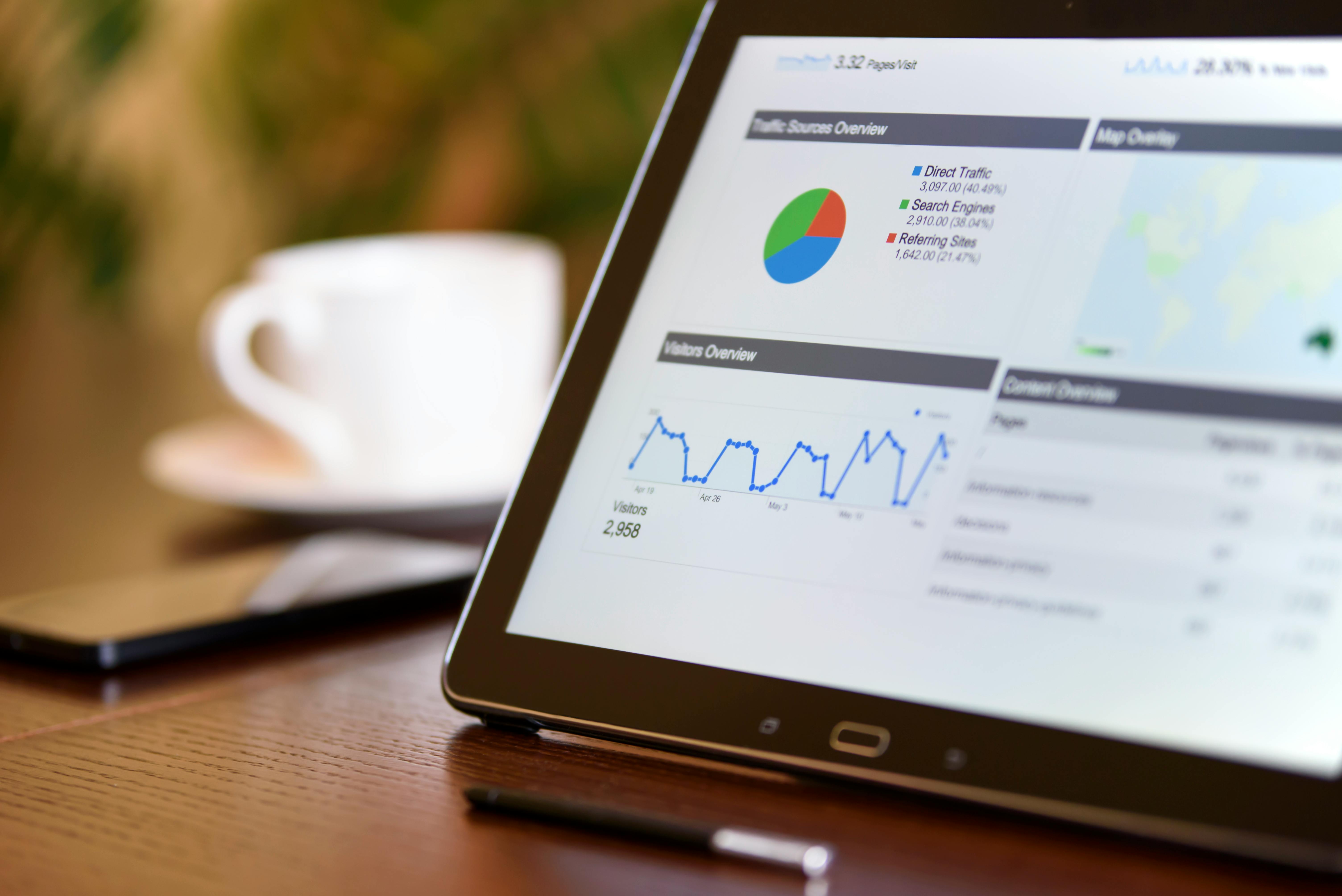The CSRD (Corporate Sustainability Reporting Directive) is radically transforming sustainability reporting practices in Europe. Adopted as part of the European Green Deal, this directive requires companies to publish detailed ESG (environmental, social and governance) data.
Faced with this new regulatory requirement, many companies are struggling to structure their approach without a dedicated tool. Indeed, collecting the right data, following the requirements to the letter without overlooking anything, and producing auditable documents are all challenges that complicate the exercise. Ultimately, all of this requires rigour, collaboration and traceability. CSRD software can be a powerful ally! In this article, discover 7 concrete reasons to adopt software to ensure successful sustainability reporting, save time and avoid pitfalls.
Effectively structure your CSRD reporting
On the one hand, the CSRD introduces an unprecedented level of rigour to sustainability reporting. To meet this challenge, companies must organise their data and comply with a strict regulatory framework: the ESRS. CSRD software supports you from the very first stages of your process: data collection, planning, collaboration and report construction. Here are the first concrete benefits.
Reason 1: Centralise your ESG data in a single, reliable environment
The first challenge in a sustainability reporting project is collecting ESG data. This data comes from multiple departments within the company (CSR, finance, HR, purchasing, etc.) and in a wide variety of formats. CSRD software allows you to centralise this information in a secure, collaborative environment. No more scattered Excel files. Thanks to a single space, teams can access a reliable, up-to-date ESG database.
Reason 2: Managing deadlines and timeframes
The CSRD is being phased in gradually depending on the size and status of companies. In addition, transitional provisions (phase-in) allow companies to defer the publication of certain information for up to three years. It is therefore crucial to keep a close eye on your calendar. Good software helps you manage regulatory deadlines, as well as your own internal milestones (collection, drafting, publication, audit).
Some tools include project management features, with dashboards, assignable tasks, alerts and reverse planning. This approach allows you to anticipate and avoid last-minute errors.
Reason 3: Easy collaboration between your different departments
The CSRD directive reinforces cross-functional reporting. On the one hand, the principle of double materiality connects the company's financial statements to sustainability information, which will involve the finance function in the project. On the other hand, the comprehensiveness of the CSRD requires the publication of a large amount of information from different departments. It is therefore no longer an exercise reserved for CSR, but a collective approach involving finance, legal, purchasing, IT, quality, HR, and more.
Well-designed CSRD software facilitates this collaboration by allowing contributions to be distributed according to each person's subject matter and skills. Data collection can also be done by department, making it much more efficient and reliable.
Reason 4: Easily structure your report according to ESRS standards
The ESRS (European Sustainability Reporting Standards) are at the heart of the CSRD. They define precisely what companies must publish in terms of qualitative and quantitative information. Dedicated software guides you by offering a structure that complies with the ESRS and the results of your double materiality analysis. This allows you to:
- browse the ESRS and material DR for your company
- follow the disclosure requirements topic by topic
- identify transitional provisions and voluntary data
- adapt the requirements to your reality thanks to customisable dimensions (country, site, type of employees, time horizon, etc.)
- identify missing elements using completeness bars
- generate a final report aligned with the regulatory structure
Thanks to this automatic structuring, you won't miss any requirements, making the exercise even more efficient and simplified.
Ensure compliance and manage your performance
Furthermore, CSRD software will ensure compliance by meeting all regulatory requirements. It will also serve as a tool for managing your CSR strategy, enabling you to adjust your performance year after year.
Reason 5: Ensuring compliance and auditability
CSRD requires companies not only to publish non-financial data, but also to prove its reliability. Each indicator published must be traceable, verifiable and justifiable. This is an essential condition for passing a sustainability audit.
CSRD software allows you to document each piece of data: source, person responsible, date of update, associated supporting documentation. This integrated traceability is valuable for you internally, for external auditors and for meeting the fair representation requirements set out in ESRS 1.
Reason 6: Directly integrate the XBRL format
Your CSRD report must be published in a single electronic format. It must be published in XHTML format with XBRL tagging. This format allows for automated reading by regulators, investors and stakeholders. Managing this XBRL tagging manually is complex and laborious. CSRD software that natively integrates XBRL tagging saves you valuable time.
Reason 7: Monitor your ESG indicators for continuous improvement
Beyond compliance, the CSRD encourages companies to engage in a process of continuous improvement. With dedicated software, you can track your ESG indicators over time, visualise your progress and identify areas for improvement.
Integrated dashboards allow you to manage:
- your greenhouse gas emissions (ESRS E1)
- your social data: diversity indicators, working conditions, remuneration, etc. (ESRS S1)
- your governance and ethics commitments (ESRS G1)
- and many other key data points.
This management tool is strategic for aligning your CSR strategy with your actual performance.
Conclusion
Adopting CSRD software is not just about compliance. It is about equipping yourself with a strategic tool to structure your ESG reporting, strengthen data traceability, engage your teams, and drive performance. A dedicated tool saves you time, reduces risk, and turns an obligation into a competitive advantage.
In a demanding European context, with rapidly changing regulations, the right tool can make all the difference. At Kiosk, our software ticks all the boxes, so don't wait any longer to discover it !
Discover more articles
Dive into the heart of the subjects

The Omnibus law : what's changing?

The 3 steps to go from the former ESRS to the new ones

New ESRS: what is changing?
FAQs
Find answers to common questions about CSRD and Kiosk
The CSRD or Corporate Sustainability Reporting Directive is the new European directive which aims to impose and better regulate corporate sustainability reports.
It makes companies more transparent, with standardized ESG reporting standards called ESRS (European Sustainability Reporting Standards)
The application of the Corporate Sustainability Reporting Directive is progressive. Here is a summary table.
| Effective year | Businesses impacted | Standard |
|---|---|---|
| 2025 (over the financial year 2024) | Listed companies with more than 500 employees | ESRS |
| 2026 (sur l’exercice 2025) | Autres grandes entreprises de plus de 1000 salariés | ESRS |
| 2026 (over the financial year 2025) | Businesses that meet two out of three criteria: | VSME |
| 2027 (over the year 2026) | SMEs listed on the stock exchange | VSME |
| 2029 (over the fiscal year 2028) | Non-European companies with at least €150M in turnover on the European market | ESRS |
Want to know when your business is impacted? Use our regulatory monitoring tool to find out.
The "omnibus" bill is a recent initiative by the European Commission aimed at reducing the scope of the CSRD directive. It proposes, in particular, to raise the application thresholds: only companies with more than 1,000 employees would be affected, compared to 250 previously.
It promotes the adoption of the VSME framework to reduce the reporting burden on SMEs and mid-cap companies.
The VSME (Voluntary Sustainability Reporting Standard) is a voluntary European standard designed to help unlisted small and medium-sized enterprises (SMEs) structure and communicate their sustainability initiatives. Developed by EFRAG, this standard offers a lighter framework compared to ESRS standards, covering ESG aspects. It allows in particular to:
- Harmonizing sustainable reporting practices in Europe
- Facilitate the response to the expectations of business partners
- Improving access to responsible financing
It aims to harmonize sustainable reporting practices, facilitate meeting the expectations of business partners, and improve access to responsible financing. Although not mandatory, adopting VSME allows SMEs to demonstrate their commitment to sustainability and anticipate future regulatory developments.
- Complete the preliminary steps for the CSRD
These steps are dual materiality analysis and gap analysis. They will help you understand the material issues, impacts, risks, and opportunities for your business. They will also allow you to create a roadmap based on what you have already achieved.
Check out our article on double materiality here.
- Compile your data and produce your indicators
Centralizing sustainability data is essential for your compliance, particularly to facilitate understanding and consistency when producing quantitative indicators.
- Produce your detailed report in XHTML format with XBRL tags
Thanks to its tagging and visualization technologies, Kiosk guarantees a very high level of consistency.
Find our article on XBRL tagging here .
- Audit your data
At the end of these steps, your sustainability report is ready to be audited by an Independent Third Party Organization (ITO).
Kiosk supports your compliance journey throughout this process. For more information on these steps, we invite you to contact our team.
CSRD compliance requires companies to:
- understanding the 12 ESRS and 82 disclosure requirements
- the collection of more than 1,000 data points
- the calculation of 50-147 quantitative indicators
- tagging 4,000 items in the final report
Kiosk is a software that allows companies to save 5 months on the preparation of their CSRD report by automating the most time-consuming steps.
- First of all, the security of your data is our priority.
- All data is stored in France, in Paris, via our French hosting provider.
- During transit, your data is encrypted in SSL/TLS from the user's browser to our servers guaranteeing the security of communications.
- Data is also encrypted at rest, both on the database and on file storage, protecting the data in the event of a leak or attempted theft.
- Kiosk's technical teams are the only ones who can access your data.
- Kiosk is in the process of ISO27001 certification.
- Our technical support is available 24/7.


.png)
